“India will be a superpower in the print and packaging industries,” says Mehul Desai of Mail Order Solutions
Mehul Desai, the founder and chairman of Mail Order Solutions, in conversation with Ganesh Gawali and Amey Sohoni, third year students at SIES GST in Navi Mumbai
27 Feb 2014 | By PrintWeek India
Ganesh Gawali (GG): How did you enter into the printing industry? What is your background?
Mehul Desai (MD): I am from a middle class family. Our family has always been into service providing. I started my first job as a sales executive in a direct marketing consulting company and most of my clients were from abroad and were seeking to outsource the print jobs to India. That is how in 1996, I started my business. Initially, I used to get my job done from various printing presses and eventually the business started increasing and I began developing my own set-up.
Amey Sohoni (AS): What is your current setup?
MD: We started our printing business in 2002. Now we have completed 12 years of service. First, we were into digital printing. Over the last few years we have scaled up and have established an in-house setup of pre-press, press and post-press, with a total area of 80,000sq/ft in Malad (west).
AS: Usually offset printers foray into digital. You are a digital printer who then moved to offset. What is the reason?
MD: I am servicing clients who are based overseas. These are companies who are dealing in direct mailing activity and have a large customer database. They wanted to initiate a personalised mailing service; hence I started with digital. Offset capacity is available very easily but variable data printers are few. As my business grew, my requirements for offset printing started increasing and outsourcing of offset printing made my processes lengthy thereby affecting the service level. So we felt, we should have our own setup for offset. Now we have three brand new Heidelberg printing presses along with a Kodak CTP system.
AS: How did you come up with the idea of direct marketing?
MD: I was always a person working in sales and marketing. I decided to make a business in the sector in which I am comfortable and that's why I started my first business in direct marketing consulting companies. The opportunity came from there as printing in Europe and North America was too costly. We carried out an exercise to find out the cost of printing in India. We found that there was a 30-35% saving in the printing cost, i.e. a huge amount of cost for them.
GG: What were your bottlenecks?
MD: In the press, one of the bottlenecks we face is in the post-press department, since the post-press equipment are very expensive. Also, if you don't have an equipment, you have to do it manually. The manual process lowers the production speed and we cannot cater to larger quantities.
GG: How do you convince your customers?
MD: One of the things that we do to convince our customers is by creating an infrastructure which is world class. If you see my press you will think that it is the press that can be seen in Europe and America. The press is equipped with latest equipments, is dust-free and completely air conditioned. The second idea we propose to them is of doing the pilot project with us. For that one project, they can see the output and If they are satisfied with our quality and service, they can enter in a long-term association with us. This is how we started building relationships with customers.
GG: How do you handle your customers?
MD: The best way associate with a customer is to maintain transparency and proper communication. If we falter, we ensure re-printing and re-dispatching to the client. We understand their problems and give solutions. However, given our long time association with the client, these are rare instances. However we don't take the advantage of this fact. Instead, we are always open and honest. This is the key to our relationship and bonding with customers.
AS: How do you motivate your employees?
MD: We do not ask a single person for everything, but we have given authority to the respective department. My mantra is, if I can't do a thing, then I can't expect that work to be done by others. One must treat everyone with respect and equality. I reward people who think beyond the conventional. There are people, who have worked with me since the establishment of the firm and that becomes an example for the freshers. I never try to control my organisation. I have given specific responsibility and authority to each and every person. I don't get involved in everything because I should spend my time developing the business and the organisation rather than managing the operations. Everybody has their own role in the organisation.
AS: A message for freshers and new comers?
MD: Be clear on what you want in your career and life. Just as you have expectations from the organisation, an organisation also expects from you. So the time frame is very important. Freshers should not take any decision within a short-time period. You have to think what will happen after five years. Think about the knowledge and the kind of exposure you are getting. On the basis of your hardwork and knowledge, you will get the exposure to look at these things rather than money.
The printing industry has expanded so much that there are wonderful opportunities for everybody who wants to join. This industry is technology-driven requiring specialised engineers. There are no substitutes to offset printing. Digital is a parallel process. I think, in the next five to six years, people will come to India because India will be a printing hub. There will be a shake up in the market but that will also create opportunity and it would be a golden opportunity for the freshers now since it is an interesting field.
GG : What is your success mantra
MD: Hard work, family support, ability to understand the customer, recognising the opportunity and honesty and transparency
GG: What are your views on the existing syllabus/curriculum for printing education?
MD: The syllabus should be modernised because most of the syllabi is concentrated on offset printing. However, today's printing is not only offset but there are so many areas in this field which have to be included into the syllabus. It should be relevant to the current technology.
AS: What are your concerns today?
MD: Capital expenditure required to put up any new set-up is costly because the cost of the equipment is very high. Hence printers hesitate to switch over to newer technologies. Customers are driving the presses rather than the printers. In such cases, the printer should analyse their set-up and prepare their own rate card.
GG: You have a professional cricket team, please tell us about it.
MD: I like cricket and we participate in corporate competitions. It gives us an opportunity to interact with each other and a good platform for being together.


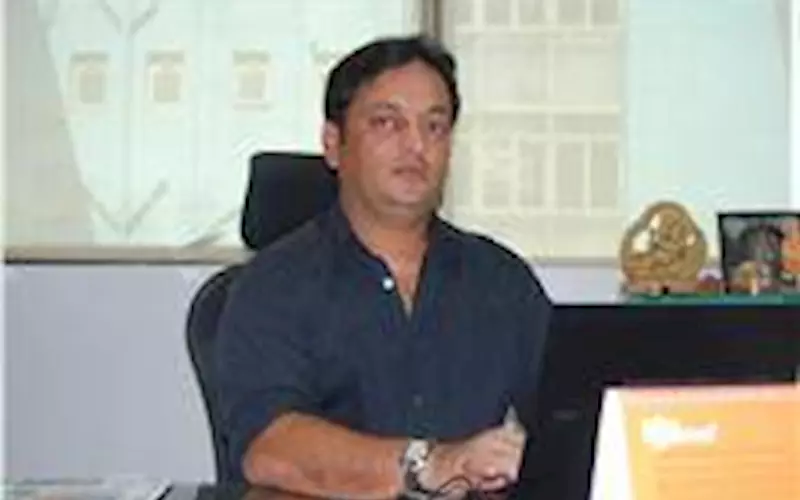
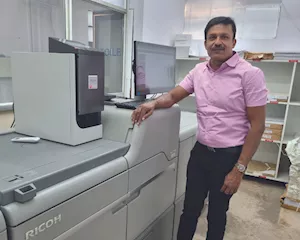
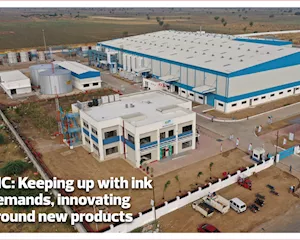
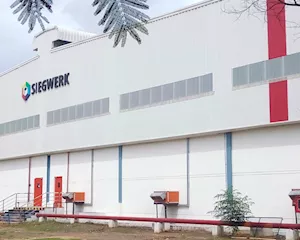
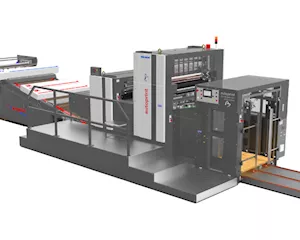
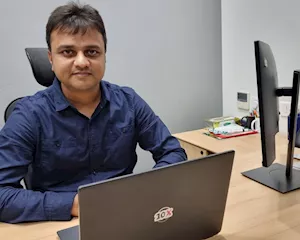






 See All
See All